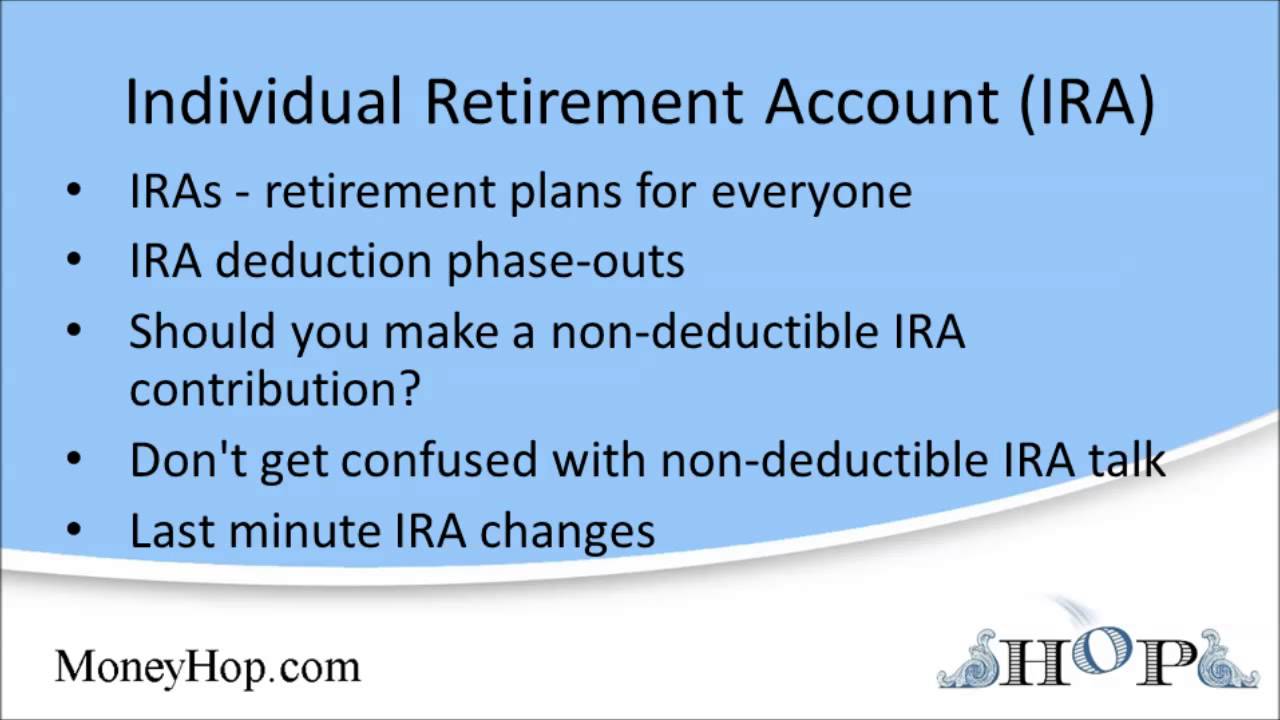Tax Benefits of an IRA
Welcome to our comprehensive guide on the tax benefits of an Individual Retirement Account (IRA). In this article, we will delve into the various tax advantages that come with having an IRA, providing you with the necessary information to make informed financial decisions. Let’s explore the potential tax benefits of an IRA and how it can help you optimize your retirement savings.
Tax-Deferred Growth
One of the key benefits of an IRA is the ability to enjoy tax-deferred growth. This means that any earnings generated within your IRA are not subject to immediate taxation. Instead, the growth of your investments remains untouched by taxes until you make withdrawals.
By deferring taxes on your IRA contributions and investment gains, you allow your funds to grow at a faster rate. This compounding effect can significantly boost your retirement savings over time.
Traditional IRA Tax Deductions
If you contribute to a Traditional IRA, you may be eligible for tax deductions. The amount you contribute to your Traditional IRA can be deducted from your taxable income, reducing your overall tax liability for the year.
It’s important to note that the deductibility of Traditional IRA contributions depends on your income level and participation in an employer-sponsored retirement plan. Be sure to consult with a tax professional or refer to the IRS guidelines to determine your eligibility for deductions.
Roth IRA Tax-Free Withdrawals
A Roth IRA offers a different tax benefit compared to a Traditional IRA. While contributions to a Roth IRA are not tax-deductible, qualified withdrawals from a Roth IRA are entirely tax-free.
Qualified withdrawals include both contributions and earnings, as long as you meet certain criteria. To make tax-free withdrawals, you must be at least 59 ½ years old and have held the Roth IRA account for at least five years. This tax advantage can be incredibly valuable during retirement, as it allows you to access your savings without worrying about tax implications.
Required Minimum Distributions (RMDs)
When you reach the age of 72, the IRS requires you to start taking minimum distributions from your Traditional IRA. These distributions are subject to income tax. However, if you have a Roth IRA, you are not required to take RMDs during your lifetime.
By having a Roth IRA, you can maintain control over your retirement funds and potentially pass on a tax-free inheritance to your beneficiaries.
Tax Benefits for Education and First-Time Homebuyers
IRAs offer additional tax benefits beyond retirement savings. For example, you can use funds from your IRA to pay for qualified higher education expenses for yourself, your spouse, children, or grandchildren without incurring the usual early withdrawal penalties. However, income taxes may still apply.
In addition, if you are a first-time homebuyer, you can withdraw up to $10,000 from your IRA to use towards the purchase of your first home without incurring the early withdrawal penalty. While this withdrawal is still subject to income tax, it can provide a valuable source of funds to assist with homeownership.

Understanding the tax benefits of an IRA is crucial for maximizing your retirement savings. By taking advantage of tax-deferred growth, deductions, tax-free withdrawals, and other incentives, an IRA can help you build a more secure financial future.
Remember, the specific tax benefits and rules surrounding IRAs may vary depending on your circumstances. It’s always advisable to consult with a qualified financial advisor or tax professional to ensure you make the most informed decisions regarding your retirement savings strategy.
Frequently Asked Questions about Tax Benefits of an IRA
1. What is an IRA?
An Individual Retirement Account (IRA) is a type of savings account that offers tax advantages for individuals to save for retirement.
2. What are the tax benefits of an IRA?
The tax benefits of an IRA include tax-deferred growth, potential tax deductions for contributions, and tax-free withdrawals during retirement.
3. Can anyone contribute to an IRA?
No, there are eligibility criteria for contributing to an IRA. Individuals must have earned income and be below a certain income threshold to contribute to a Traditional IRA, while Roth IRA contributions have income limits.
4. How much can I contribute to an IRA?
The annual contribution limit for an IRA depends on your age and the type of IRA. For 2021, individuals under 50 can contribute up to $6,000, while those 50 and older can contribute up to $7,000.
5. Are IRA contributions tax-deductible?
Contributions to a Traditional IRA may be tax-deductible depending on your income, filing status, and whether you or your spouse have access to an employer-sponsored retirement plan.
6. Are there penalties for early withdrawals from an IRA?
Yes, if you withdraw funds from a Traditional IRA before the age of 59½, you may be subject to a 10% early withdrawal penalty in addition to paying income tax on the withdrawn amount. Roth IRAs have more flexibility, allowing penalty-free withdrawals of contributions at any time.
7. Can I have both a Traditional IRA and a Roth IRA?
Yes, you can have both types of IRAs, but the annual contribution limit applies to the combined total of both accounts.
8. Can I rollover funds from one IRA to another?
Yes, you can rollover funds from one IRA to another without incurring taxes or penalties, as long as the rollover is completed within 60 days.
9. When do I need to start taking distributions from my IRA?
Required Minimum Distributions (RMDs) from Traditional IRAs must start by April 1st of the year following the year you turn 72 (or 70½ if you reached that age before January 1, 2020). Roth IRAs do not require RMDs during the account owner’s lifetime.
10. Can I use IRA funds for purposes other than retirement?
While IRAs are primarily designed for retirement savings, there are certain exceptions where you can use funds for qualified higher education expenses, first-time home purchases, or in case of certain hardships. However, taxes and penalties may apply in these situations.




